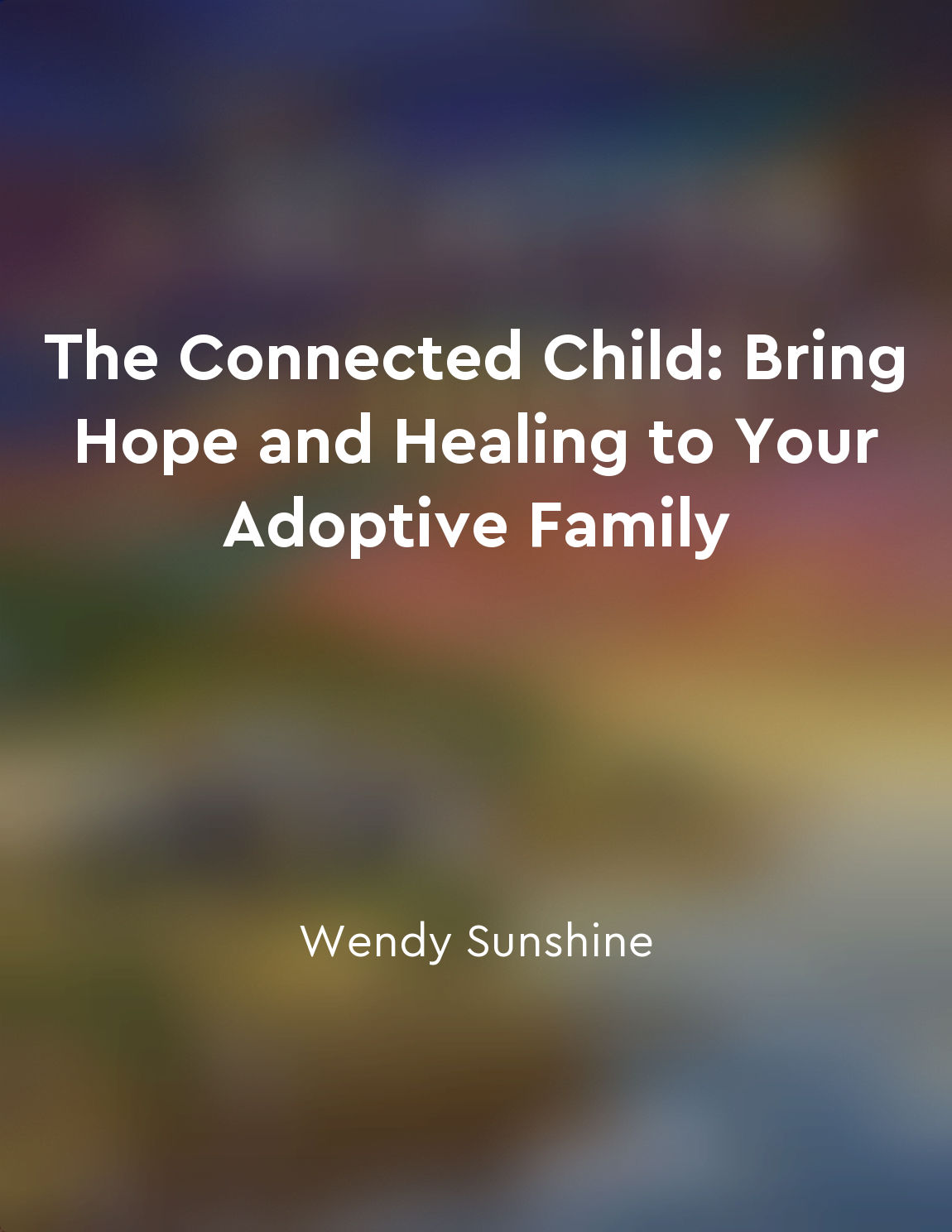Being mindful of each child's emotional needs can prevent rivalry from "summary" of Siblings Without Rivalry by Adele Faber,Elaine Mazlish
When we pay attention to each child's emotional needs, we can prevent rivalry from taking root in our homes. This means being aware of each child's unique personality, feelings, and challenges. By understanding and addressing their individual emotional needs, we can create a more harmonious environment for our children to thrive. When we take the time to listen to each child and validate their emotions, we show them that their feelings are important and worthy of attention. This helps them feel seen and heard, reducing the likelihood of them acting out in search of validation or attention from their siblings. Additionally, when we are mindful of each child's emotional needs, we can help them develop healthy coping mechanisms for dealing with their emotions. Instead of resorting to rivalry as a way to express their feelings, they can learn to communicate openly and constructively with their siblings. By fostering a supportive and understanding environment, we can encourage our children to build strong bonds with each other based on empathy and mutual respect. When siblings feel understood and supported by their parents, they are more likely to treat each other with kindness and compassion, rather than competition and resentment.- Being mindful of each child's emotional needs is a proactive approach to preventing rivalry before it starts. By creating a foundation of understanding and empathy within our families, we can help our children navigate their relationships with each other in a healthy and positive way.
Similar Posts
Autobiographical account
An autobiographical account is a personal narrative that recounts the events and experiences of a person's life. It is a reflec...
Support healthy habits
Supporting healthy habits is crucial for children's well-being and success. When it comes to habits like exercise, healthy eati...
Parenting is a science that involves understanding children's emotions
Parenting is not just about providing for children's physical needs; it also involves understanding and responding to their emo...

Education on traumainformed care is valuable
Understanding the importance of trauma-informed care is crucial when it comes to helping children who have experienced trauma. ...

Provide opportunities for children to make decisions
When children are given the chance to make decisions, they feel empowered and respected. They learn to take responsibility for ...

Put the relationship with your child first
When we talk about putting the relationship with your child first, we are referring to the importance of prioritizing the conne...
Set clear boundaries with love
Setting clear boundaries with love is a crucial aspect of parenting. It is important to establish healthy boundaries early on i...

Practice patience and understanding
Patience and understanding are not natural traits for most of us. They must be practiced and cultivated over time. It is easy t...

